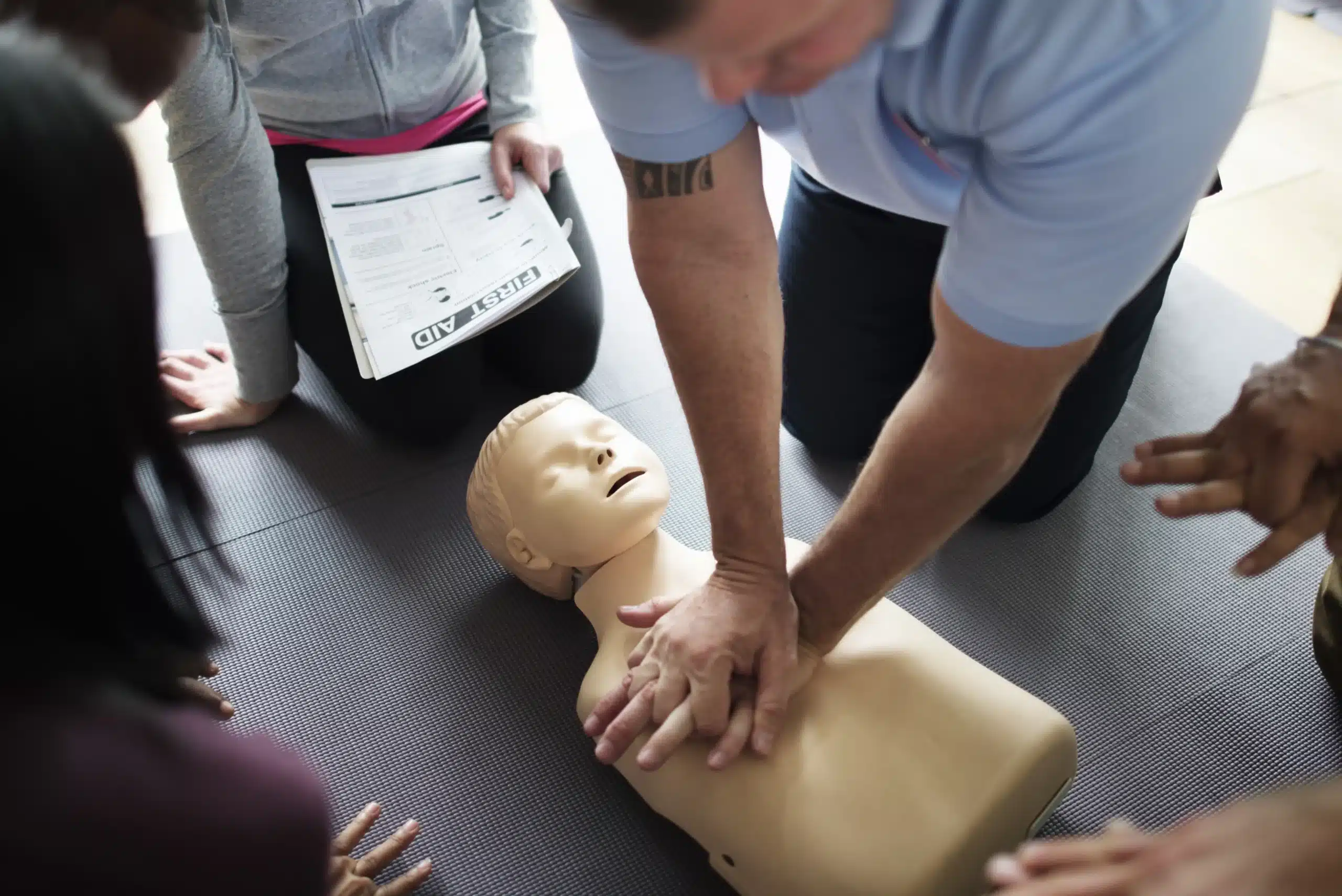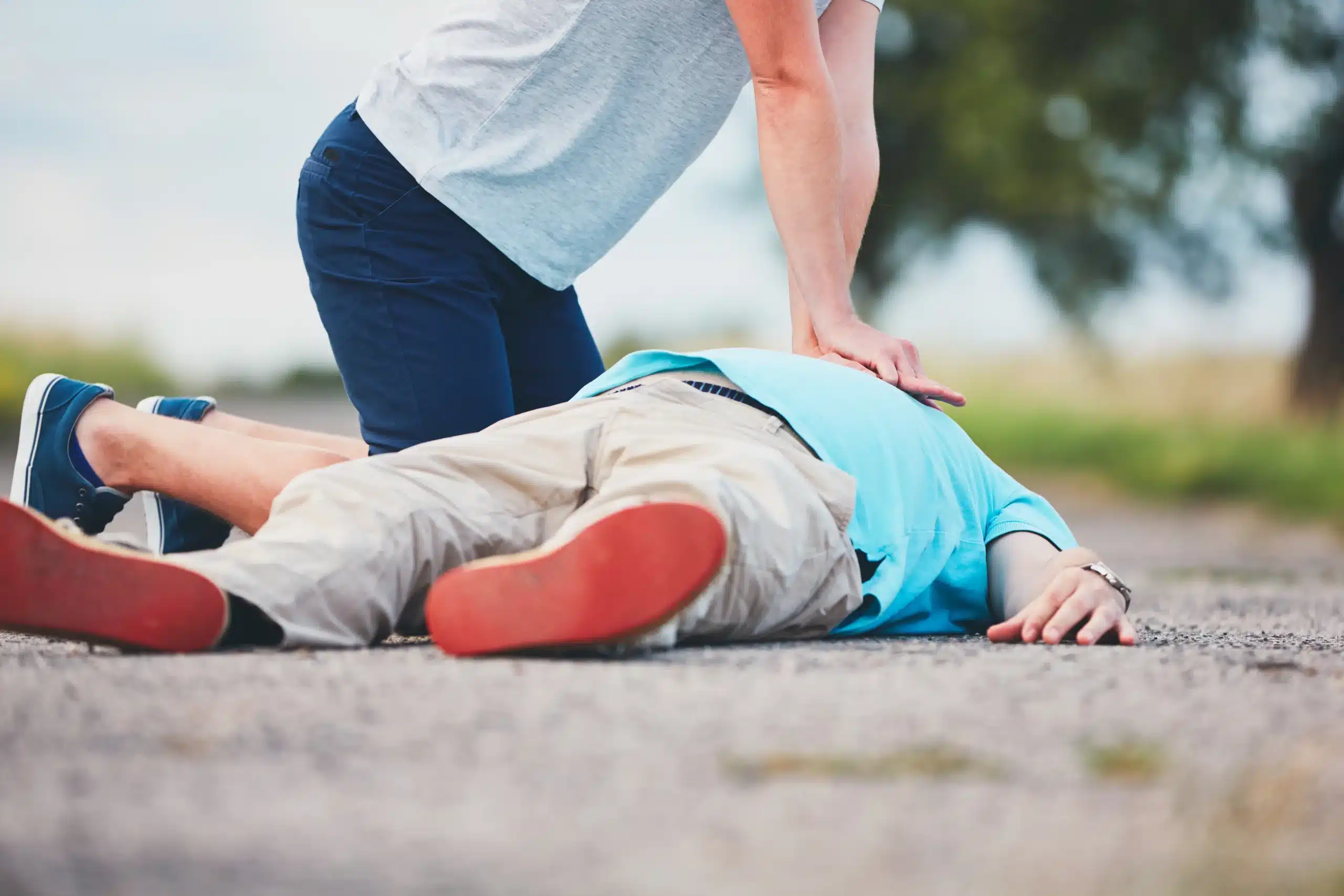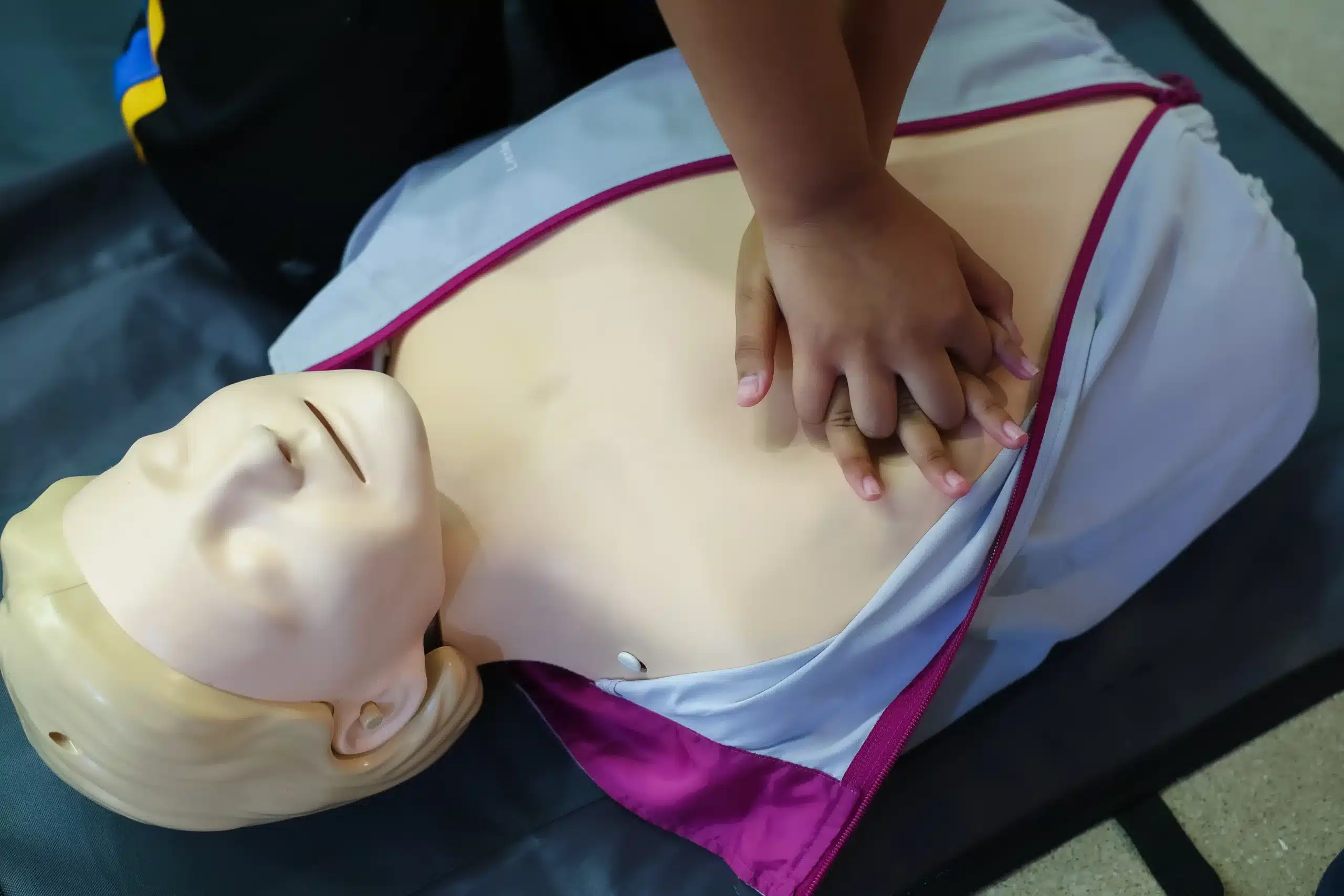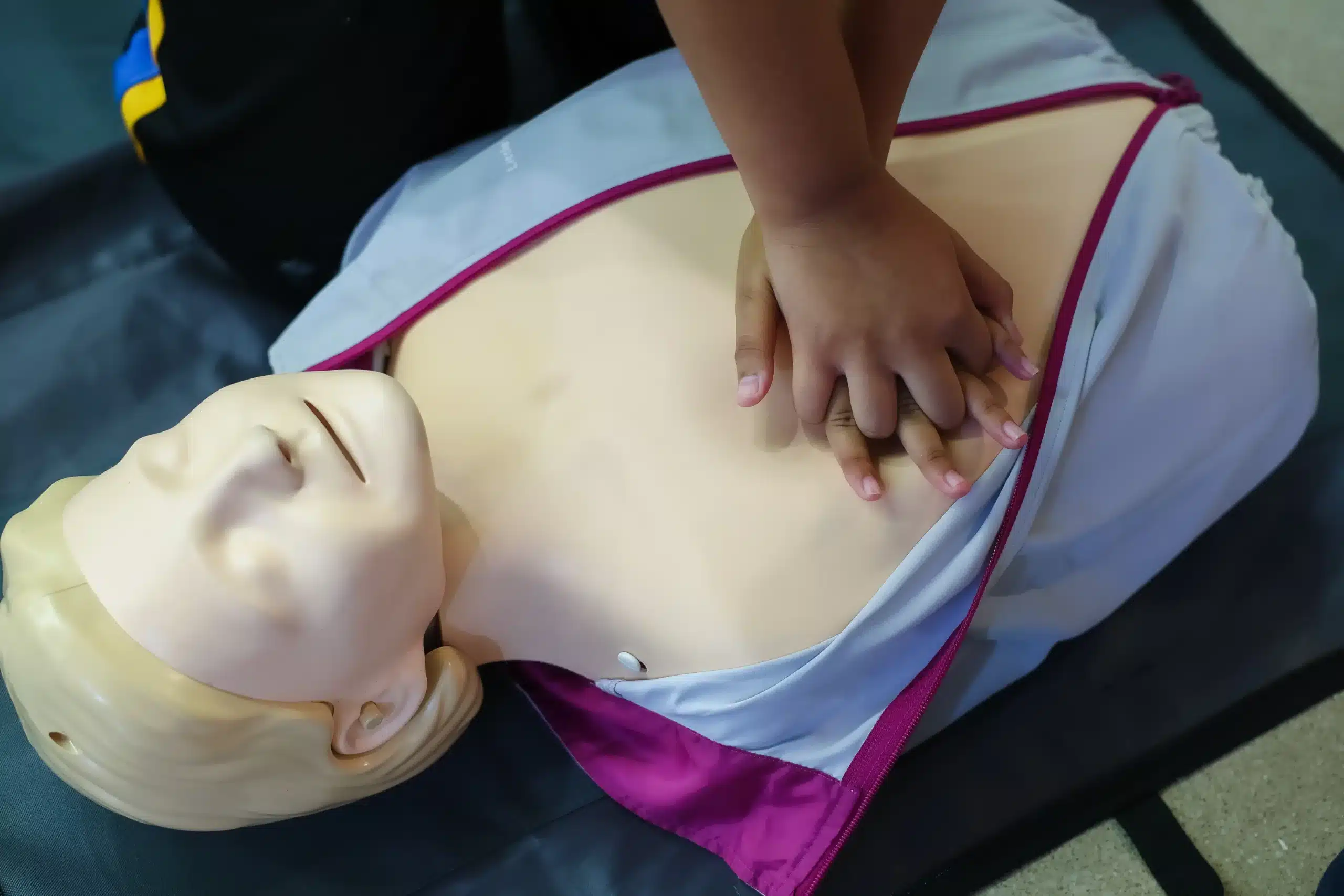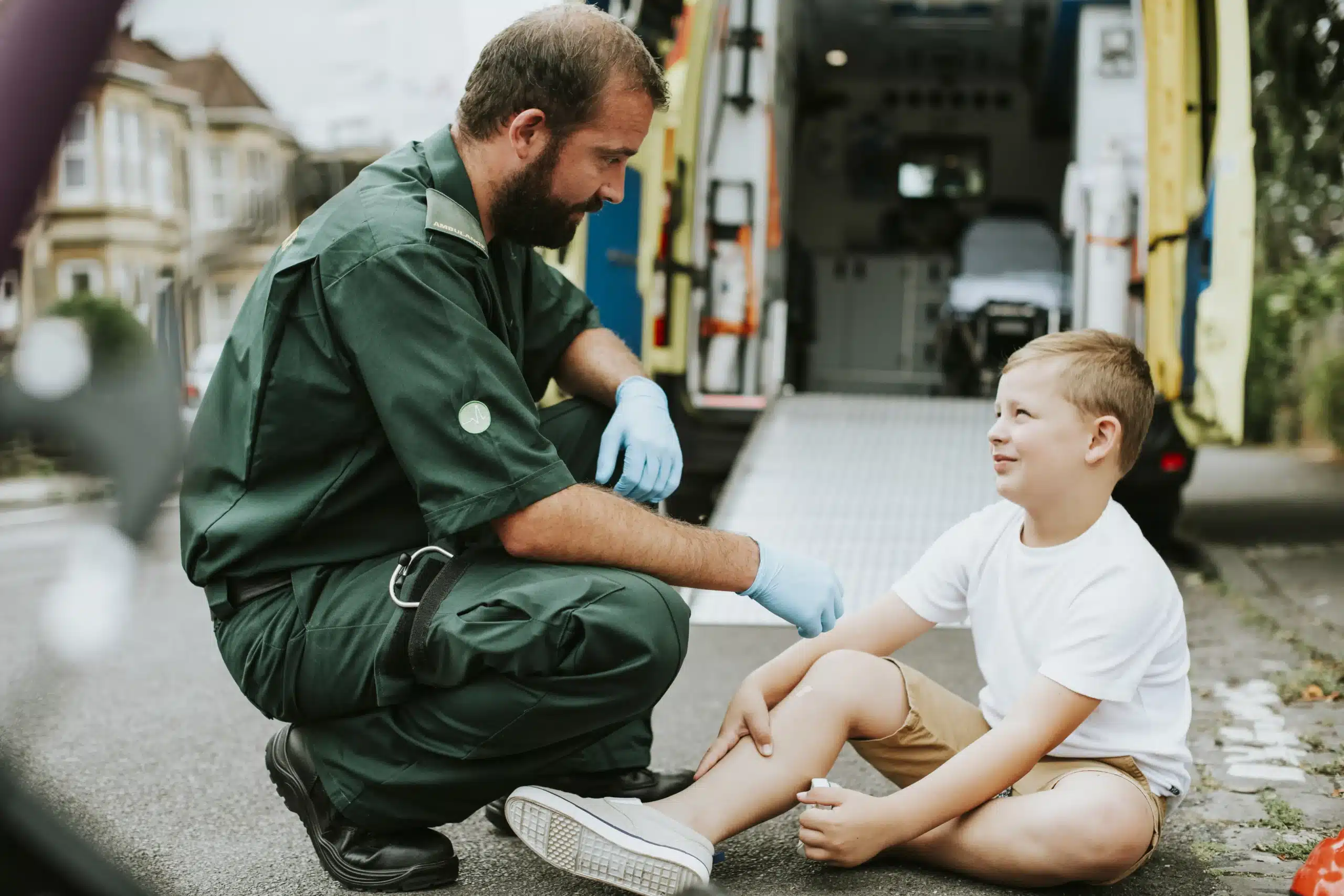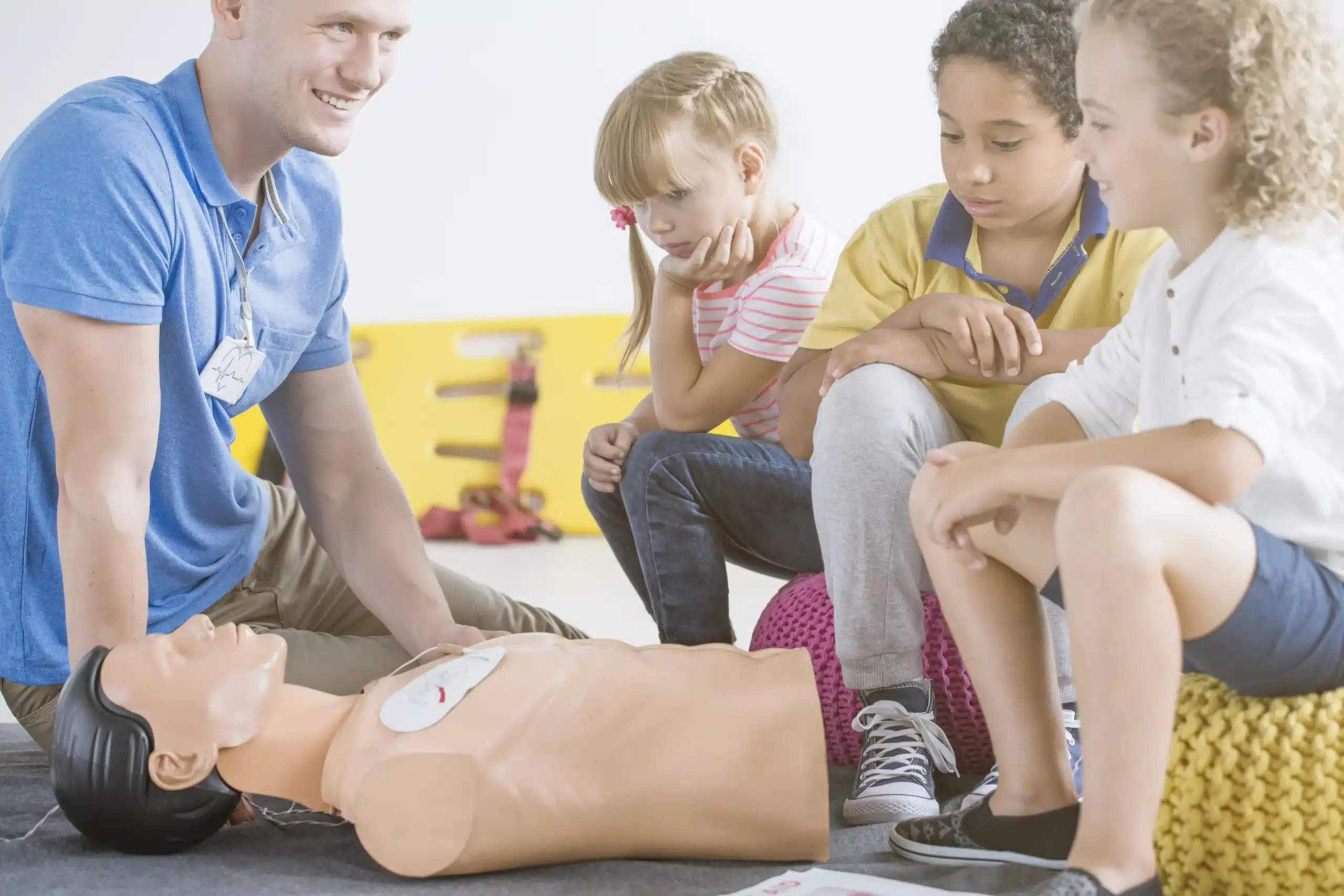Life throws curveballs. Being prepared for a medical emergency can make all the difference. CPR renewal in Rohnert Park is easier than you think, and this guide will walk you through the process step by step. We’ll cover everything from the basics of CPR renewal to finding affordable and convenient courses in your area. Whether you’re looking for an in-person class, online training, or something in between, we’ll help you find the perfect fit. We’ll also discuss why staying current with your CPR certification is so important and provide resources to help you maintain those life-saving skills between renewals. Let’s get started and ensure you’re ready to respond confidently in any situation.
Key Takeaways
- Regular CPR renewal is crucial for effective emergency response: Stay up-to-date with the latest guidelines and best practices by renewing your certification. Explore different learning formats and course providers to find the best fit.
- Rohnert Park offers a variety of CPR renewal courses to suit your needs: Research providers like Safety Training Seminars, Vive CPR, and the Red Cross, considering factors like cost, convenience, and the type of certification required.
- Maintain your CPR skills between renewals through practice and readily available resources: Regularly review techniques, utilize online refreshers, and consider supplemental training to keep your skills sharp and your confidence high.
What is CPR Renewal & Why It Matters?
CPR (Cardiopulmonary Resuscitation) renewal is how you keep your life-saving skills sharp and your certification current. CPR certifications are typically valid for two years, after which you’ll need a renewal course. This is crucial for several reasons.
First, CPR guidelines and best practices can change. Staying up-to-date through a CPR renewal course ensures you’re prepared to respond effectively in a real emergency. This ongoing education can make all the difference.
Second, maintaining a valid certification from a recognized organization like the American Heart Association (AHA) or the Red Cross ensures your skills are respected and accepted, whether you’re a healthcare provider or someone who wants to be prepared to help. These certifications are valuable nationally and internationally. Online CPR certifications offer flexibility while still providing valuable training. For affordable online renewal options, the National CPR Foundation offers courses to help make maintaining your certification accessible, which is especially important for community members in Rohnert Park.
CPR Renewal Options in Rohnert Park
Finding the right CPR renewal course can feel overwhelming, but Rohnert Park offers several convenient choices. Here’s a rundown of providers and options to help you find the perfect fit:
Safety Training Seminars
While Safety Training Seminars offers CPR certification courses in Petaluma, they also serve Rohnert Park and Novato. Check their website for course availability and schedules, or contact them to discuss training options in Rohnert Park. They offer a low price guarantee and group discounts, making them a potentially cost-effective option. Their American Heart Association-compliant courses include BLS, ACLS, and PALS.
Vive CPR
Vive CPR offers various CPR and first aid classes throughout the Bay Area, including Rohnert Park. They provide flexible learning with in-person classes at their Rohnert Park classroom, onsite training at your home or business, and virtual courses for non-certification needs. This flexibility makes Vive CPR a good option for those seeking personalized or convenient training.
In-Home CPR
In-Home CPR specializes in bringing CPR and first aid training to your home or business in Rohnert Park. They offer a range of courses from basic CPR to advanced certifications like ACLS. Their focus on in-home training makes them an excellent choice for busy individuals or groups who prefer learning in a familiar environment.
American Red Cross
The American Red Cross provides nationally recognized CPR renewal courses in various formats. They offer in-person, online, and blended learning options. Their streamlined renewal courses are designed to refresh your skills efficiently. Check their website for class availability near Rohnert Park.
National CPR Foundation
If you’re looking for a budget-friendly and convenient option, the National CPR Foundation offers online CPR and first aid recertification. Their self-paced online courses are accessible anytime, anywhere, and provide nationally recognized certification.
Costs & Value of CPR Renewal Classes
CPR renewal doesn’t have to break the bank. Understanding what influences pricing can help you find a course that fits your budget and provides real value.
Average Rohnert Park Costs
In Rohnert Park, online CPR recertification is typically available for around $12.95. This often includes your digital completion card, with a physical card mailed within a few business days. In-person renewal courses usually range from $50 to $75.
Factors Affecting Pricing
Several factors contribute to the cost of CPR renewal classes. Online courses tend to be more budget-friendly than in-person training because of lower overhead. Renewal courses are also generally shorter than initial certification courses, making them more affordable. The type of CPR certification you need (BLS, ACLS, PALS) also affects the price. BLS renewal is typically less expensive than ACLS or PALS renewal because of the specialized nature of advanced cardiovascular life support. Group discounts can also lower the per-person cost, making it a good option for businesses or groups. See our group discount options for more information.
Comparing Provider Value
When choosing a CPR renewal provider in Rohnert Park, think about the overall value. Beyond price, look for providers who prioritize excellent customer service and flexible scheduling. Some providers, like Vive CPR, offer various courses throughout the Bay Area and are known for competitive pricing. Others, like In-Home CPR, bring the training to your location, offering convenience for busy individuals or businesses. At Safety Training Seminars, we offer a low price guarantee, ensuring you receive high-quality training at a competitive price. We also offer convenient scheduling and excellent customer support to make your renewal process as smooth as possible.
CPR Certification: Validity & Renewal
This section covers everything you need to know about how long your CPR certification is valid and what to expect when it’s time to renew. We’ll explore the standard certification timeframe, ideal renewal timing, and the potential impact of letting your certification lapse.
How Long Does Certification Last?
CPR certifications, like those offered by the American Red Cross, are typically valid for two years. This timeframe reflects the understanding that skills and knowledge retention can naturally decrease over time. While two years is the standard, always double-check your certification card for the exact expiration date. Maintaining a current certification ensures you’re prepared to respond effectively should an emergency arise. At Safety Training Seminars, our courses, including BLS, ACLS, and PALS, all adhere to this two-year standard.
When Should You Renew?
Start thinking about renewing your CPR certification a few weeks before it expires. This allows plenty of time to find a class that fits your schedule and prevents a lapse in your certification. Avoid the last-minute rush! Consider our discount group classes for a cost-effective way to renew with colleagues or friends. Our low price guarantee ensures you’re receiving high-quality training at a competitive price.
Consequences of Expiration
Letting your CPR certification expire can have repercussions. Research from the Red Cross indicates that CPR skill retention can diminish significantly within months of initial training, with less than half of participants passing skills tests after a year. This decline highlights the importance of timely renewal. An expired certification might also affect your eligibility for certain jobs or volunteer opportunities requiring valid CPR credentials. Renewing demonstrates your commitment to maintaining these vital lifesaving skills and ensures you’re ready to act confidently when it matters most.
CPR Renewal Training Formats
Renewing your CPR certification means finding a training format that fits your learning style and schedule. Here’s a look at the most common options:
In-Person Classes
In-person CPR classes offer hands-on learning and direct instructor feedback. This format is great for people who learn best in a classroom setting. You’ll practice techniques on mannequins and receive real-time corrections, building a solid foundation in life-saving skills. Vive CPR offers in-person classes in Rohnert Park, making it easy to find a convenient location. This personalized approach is especially helpful for those new to CPR or who prefer direct interaction.
Online Courses
If your schedule is tight, online CPR renewal courses offer flexibility. You can complete the coursework at your own pace, wherever you have internet access. The National CPR Foundation offers affordable online options. Just remember that online courses usually require an in-person skills assessment to complete your certification.
Hybrid Learning
Hybrid learning combines online coursework with in-person skills practice. You study the material online at your own speed, then attend a shorter in-person session to demonstrate your skills and receive feedback. The Red Cross offers this blended learning approach. It’s a good option for those who want flexibility but also value hands-on training.
In-Home Training
For a truly personalized experience, consider in-home CPR training. An instructor comes to your home or workplace, providing tailored instruction for you or a small group. In-Home CPR offers this convenient service in Rohnert Park. This is an excellent choice for families, businesses, or anyone who prefers a private and focused learning environment.
CPR Instructor Qualifications & Course Content
What Makes a Qualified Instructor?
A qualified CPR instructor isn’t just someone who knows CPR—they’re also an effective communicator who can break down complex information and make it easy to understand. Look for instructors with a strong background in healthcare, such as registered nurses, paramedics, or EMTs. These professionals often have extensive hands-on experience, giving them valuable insights to share with students. Experienced professionals bring a level of real-world knowledge that enriches the learning experience. For example, at Safety Training Seminars, our instructors often share anecdotes from their own experiences, helping students understand how to apply their CPR skills in diverse situations. You can find more information about our CPR courses on our website.
Course Curriculum & Skills Assessment
CPR renewal courses are designed to refresh your skills efficiently. They typically cover core CPR techniques, including chest compressions, rescue breaths, and how to recognize the signs of a cardiac arrest. You’ll also review how to use an AED (automated external defibrillator). Hands-on practice is a critical part of any CPR class. You’ll have the opportunity to practice on mannequins, allowing you to develop muscle memory and build your confidence. Many courses incorporate blended learning, combining online modules with in-person skills sessions. This flexible approach allows you to learn at your own pace and get the hands-on practice you need. You can explore different learning formats and CPR renewal options through the Red Cross.
Staying Updated on Guidelines
CPR guidelines are constantly evolving as medical research advances. Reputable CPR courses stay up-to-date with the latest recommendations from organizations like the American Heart Association (AHA) and the ILCOR (International Liaison Committee on Resuscitation). These updates ensure you’re learning the most effective techniques for providing aid in a cardiac emergency. When choosing a CPR renewal course, verify that the curriculum aligns with current guidelines. This is crucial for providing the best possible care and improving outcomes for cardiac arrest victims.
Choose the Right CPR Renewal Course
Picking the right CPR renewal course isn’t one-size-fits-all. It takes a little research to find what truly works for you. Here’s how to find the perfect fit:
Assess Your Needs
First, figure out what you need. Are you required to have a CPR certification for your job, or are you refreshing your skills? If you need certification, make sure the course offers one from a recognized organization like the American Heart Association. If you’re not required to have a card, a non-certification refresher course might be a good option. This can be a quicker, more affordable way to brush up on the basics. Our BLS course is a great option for healthcare providers seeking recertification.
Compare Course Offerings
Once you know what kind of course you’re looking for, see what’s available. In Rohnert Park, you have several choices, including Safety Training Seminars, Vive CPR, In-Home CPR, and the Red Cross. Each provider offers different courses, formats, and schedules. See which aligns best with your needs. For example, if you’re a healthcare professional needing ACLS renewal, check out our ACLS course. We also offer PALS for those specializing in pediatric care.
Scheduling & Convenience
Finding a course that fits your schedule is key. Look for providers offering classes on evenings and weekends, or even same-day or short-notice classes. If getting to a specific location is challenging, consider online courses or providers like In-Home CPR that come to you. We understand the need for flexibility, which is why we offer group discounts and a low price guarantee. Think about what makes learning easiest for you and prioritize those factors.
The CPR Renewal Process: What to Expect
CPR renewal in Rohnert Park, much like initial certification, emphasizes practical skills and knowledge. Here’s a glimpse of what you can expect during your renewal course.
Course Duration & Structure
Renewal courses are designed to refresh existing skills and knowledge, so they’re generally shorter than initial CPR certification courses. Expect a more concise curriculum focused on key techniques and updates to guidelines. This efficient approach allows you to quickly recertify without redundant material. Check with your chosen provider, like Safety Training Seminars, for specifics on CPR course length, as it can vary based on the type of CPR (BLS, ACLS, PALS).
Hands-On Practice & Assessment
Hands-on practice is crucial for any CPR training, including renewals. You’ll have opportunities to practice chest compressions, rescue breaths, and other essential techniques on mannequins. This practical experience builds confidence and muscle memory, ensuring you’re prepared to respond effectively in a real emergency. Many providers, including those offering group discounts for CPR renewal, incorporate realistic scenarios and simulations to enhance the learning experience.
Certification & Resources
Upon successful completion of your CPR renewal course, you’ll receive an updated certification card, often valid for two years. This card demonstrates your current CPR qualifications and is essential for many healthcare and professional roles. Some providers also offer digital certifications and access to online resources for ongoing learning and support. For various CPR certifications, including ACLS certification, consider providers like Safety Training Seminars.
Maintain CPR Skills Between Renewals
Knowing CPR can give you confidence in a crisis. But CPR skills can fade over time. Regular practice and refreshers are key to maintaining the muscle memory and quick thinking needed to perform CPR effectively. This is especially important for residents of Petaluma, Rohnert Park, and Novato, ensuring our communities are prepared for emergencies.
Practice Techniques
Think of CPR skills like any other skill—consistent practice is crucial. Even without a manikin, you can review the steps and visualize the process. Mentally rehearse chest compressions, rescue breaths, and recognizing the signs of cardiac arrest. The American Heart Association offers resources to guide these mental rehearsals. Practicing hand placement and compression depth on a firm pillow or cushion can also help maintain familiarity with the techniques.
Refresher Resources
Many resources can refresh your CPR knowledge. Short videos and online tutorials offer quick reminders of key steps. The Red Cross provides online refreshers and shorter renewal courses to keep you up-to-date. These are designed for convenience, making it easier to fit them into your busy schedule. Your local fire department or community center may also offer free or low-cost CPR refresher courses. Check with your local providers in Petaluma, Rohnert Park, and Novato for options.
The Importance of Continuous Learning
CPR guidelines and best practices can change, so continuous learning is essential. Regular renewal ensures you’re equipped with the most current knowledge and techniques. This benefits those you may assist and fulfills requirements for many workplaces and certifications. Staying current demonstrates your commitment to providing effective care in an emergency. Safety Training Seminars offers various renewal courses in Petaluma to help maintain your skills and meet these requirements. Remember, regular practice and ongoing education are the cornerstones of effective CPR.
Related Articles
- CPR Renewal in Petaluma: Your Simple Guide – Petaluma CPR Classes
- CPR Renewal in Novato: Your Complete Guide – Petaluma CPR Classes
- Why CPR is Vital in Saving Lives
- BLS Renewal in Novato: Your Complete Guide – Petaluma CPR Classes
- CPR Certification Petaluma: The Complete Guide – Petaluma CPR Classes
Frequently Asked Questions
How often do I need to renew my CPR certification? CPR certifications are typically valid for two years. It’s always a good idea to check your certification card for the specific expiration date.
What are my options for CPR renewal in Rohnert Park? You have several choices for renewing your CPR certification in Rohnert Park. You can find in-person classes, online courses, and hybrid learning options (a mix of online and in-person). Some providers even offer in-home training. Check out local providers like Safety Training Seminars, Vive CPR, and In-Home CPR, or explore options through national organizations like the American Red Cross and the National CPR Foundation.
How much does CPR renewal cost? The cost varies depending on the provider, the type of CPR (BLS, ACLS, PALS), and the format (online or in-person). Online renewals are generally the most affordable, often around $15. In-person classes typically range from $50 to $75. Look for providers offering group discounts, which can lower the cost per person.
What if my CPR certification expires? If your certification expires, you’ll need to take a renewal course to regain your credentials. An expired certification could impact your eligibility for certain jobs or volunteer opportunities. Plus, your skills can diminish over time, so staying current is crucial for providing effective assistance in an emergency.
How can I keep my CPR skills sharp between renewals? Regular practice is key. Even without a manikin, you can mentally rehearse the steps and visualize the process. Look for online resources, videos, and tutorials that offer quick refreshers. You can also check with your local fire department or community center for refresher courses.
